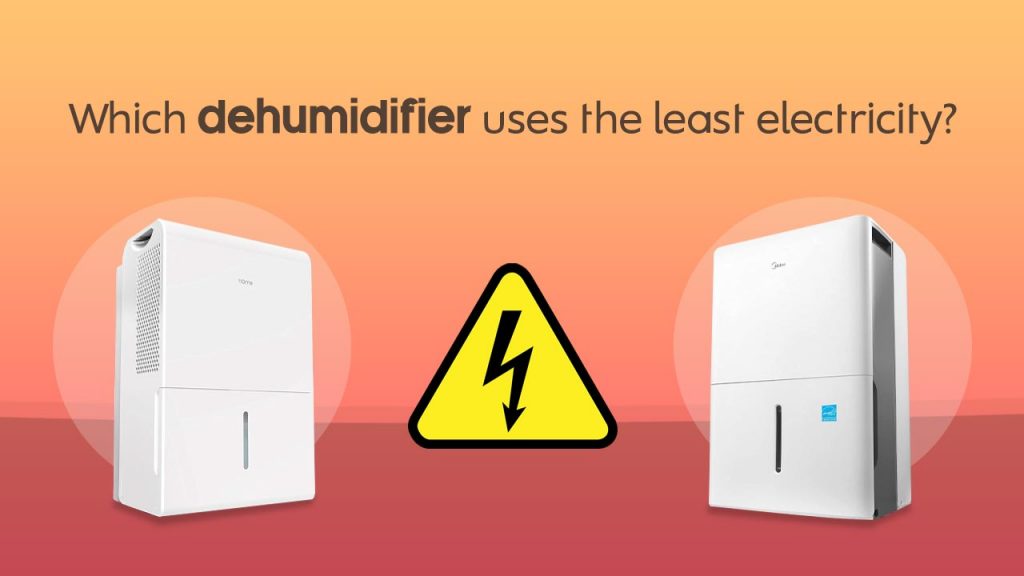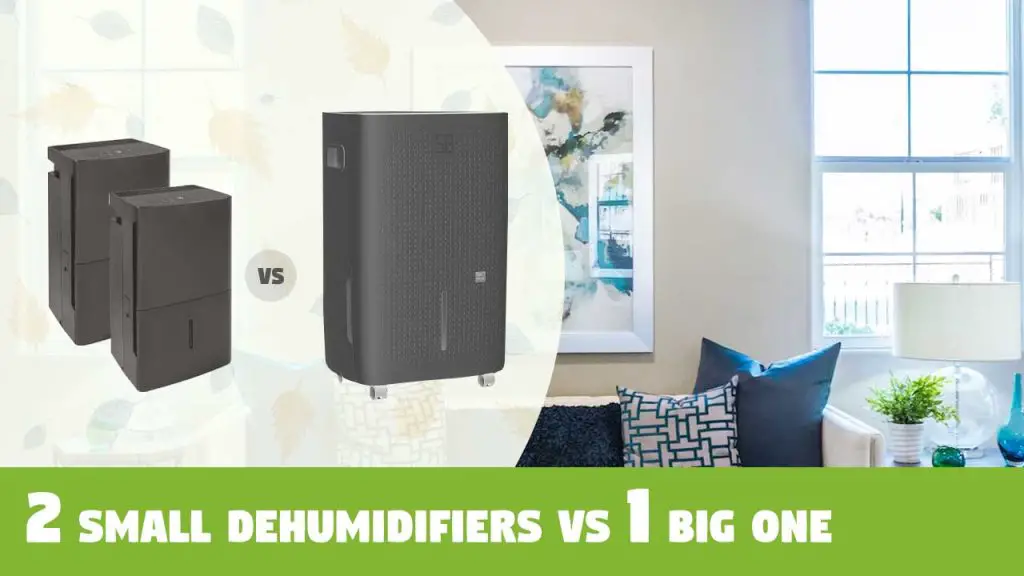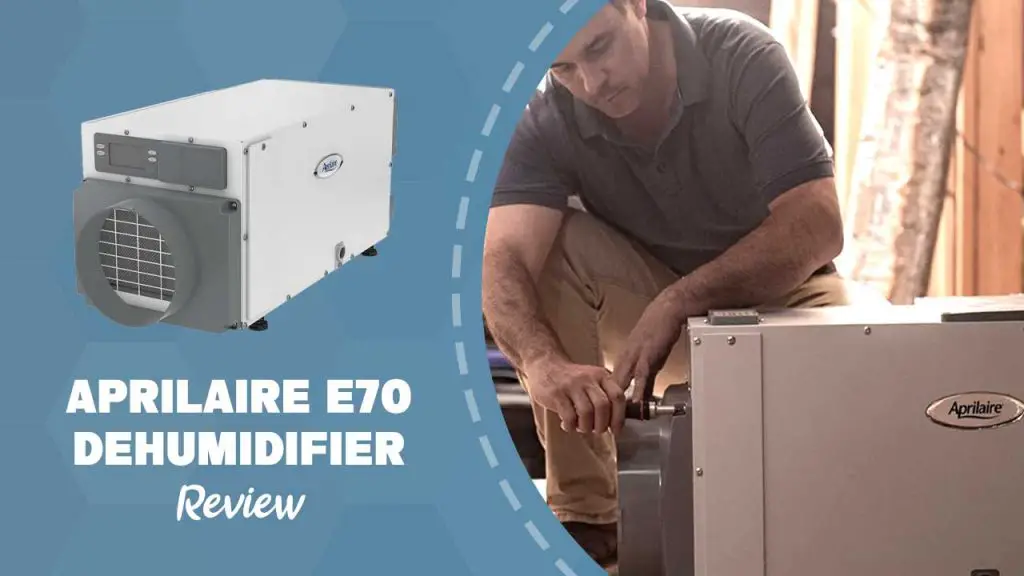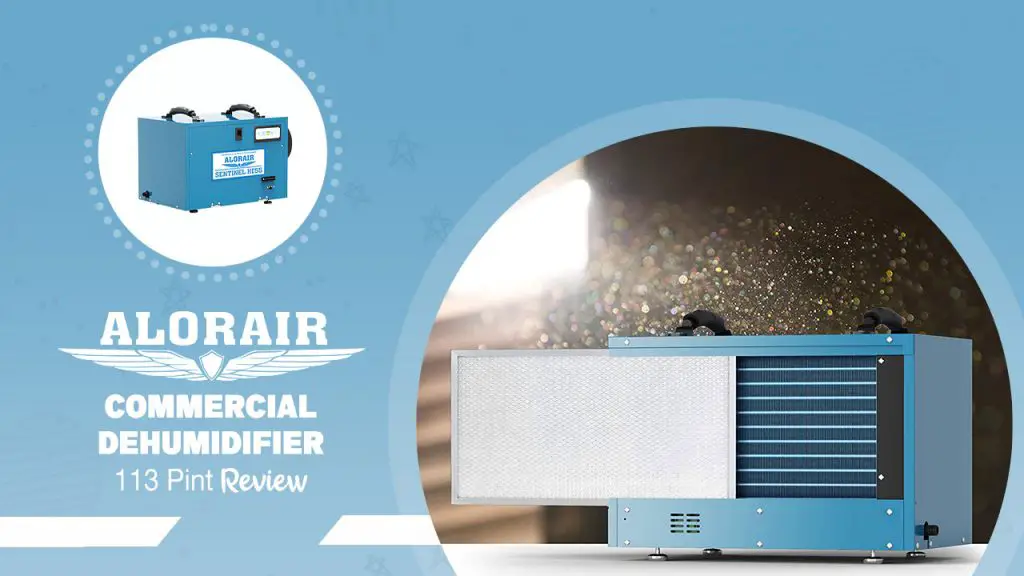If you’ve ever owned a dehumidifier, then you know how helpful they can be when it comes to reducing excess indoor air humidity and making our homes and offices comfortable.
Dehumidifiers work by pulling in air from the room- along with its moisture content- and drying up the pulled in air before releasing it back into the room. Like all other electrical appliances, dehumidifiers also use up electricity, and you’d sure pay some bills at the end of each month.
But we’ve seen over time that the amount of electricity a dehumidifier consumes varies from one brand to another, as well as from model to model.
As expected, when homeowners are on the market for dehumidifiers, they often lookout for the best energy-star rated units; products considered to take up the least electricity. That’s why we’ve put up this post; to make your search easier and save you some money as you run your unit.
Do Dehumidifiers Use a Lot of Electricity?
Relatively, no. Compared to appliances like air purifiers, humidifiers and diffusers, you may be tempted to say dehumidifiers use a lot of electricity.
However, when you compare them to other appliances like air conditioners, heaters, pressing iron, and so on, dehumidifiers are among the least energy consumers in any home.
Our research into hundreds of dehumidifier products shows that they have a wattage range between 200W and 1,000W, which is translated as 0.2kWh and 1kWh, with an average of around 600 watts.
Furthermore, we found that the most common wattage range on the market was 600W, which seems to suggest that products that exceed that mark are largely high on energy consumption while those below are considered low on energy cost.
Due to the proliferation of dehumidifiers and their ranges in size, there is a wattage difference of about 800W (0.8kWh) between the units with the lowest wattage and those with the highest wattage. This range includes both residential and industrial units.
How Much Electricity Does a Dehumidifier Use Per Day?
This will depend on the wattage of the dehumidifier and how long you run the unit per day. Based on our range above, daily electricity consumption for dehumidifiers ranges from 4.8kW to about 24kW, with the most common range being between 8kW and 14kW per day.
Furthermore, energy star-rated dehumidifiers have a daily electricity consumption range of 4.8 kWh to about 13.60kWh. This calculation is based on the assumption that the unit is used for 24 hours daily.
However, if you only run your unit for around 12 hours daily, the figures above will be split in half. That is, daily usage will amount to 2.4kWh to about 12kWh in range. Again, the daily consumption is dependent on how many hours you run the unit.
If 16 hours per day will do it for you, the figures will change as well. On average, the electricity cost of running a dehumidifier is 14.4kWh (if you run the unit 24 hours daily) or 7.2kWh (if you run the unit for 12 hours daily).
Average Monthly Cost of Running a Dehumidifier
The only recurring monthly cost of running a dehumidifier is that of electricity. To arrive at the average monthly cost, you need to know the cost of electricity per kWh in your region.
In the United States, the average is $0.13 per kWh. Therefore, we can calculate the daily wattage range of 0.2kWh and 1kWh.
For the small 0.2kW dehumidifier: 0.2 x 0.13 = $0.026 per hour.
If you run the unit for 24 hours daily, that’ll amount to $0.624 per day. When you multiply that by 30 days, you’ll get $18.72 per month.
For the large 1kW dehumidifier: 1 x 0.13 = $0.13 per hour.
If you run the unit for 24 hours daily, that’ll amount to $3.12 per day. In a month, you’d be spending about $93.6 on electricity.
Therefore, dehumidifiers cost between $18.72 and $93.6 a month to run on electricity. That’s an average of $56.2 every month.
Which Is the Most Economical Dehumidifier?
The most economical dehumidifier is the one that has the highest IEF (Integrated Energy Factor) for energy efficiency.
This doesn’t refer to the smallest unit that requires the least amount of electricity to run; No. It refers to the dehumidifier that removes the most moisture using the least electricity. That’s the definition of efficiency. There are two things to take into consideration;
- The dehumidifier moisture removal capacity is high (measured in liters).
- It requires the minimum electricity to do it (measured in kWh).
The IEF is calculated as moisture removed (in liters)/the electricity spent (in kWh). On average, energy-efficient (energy-star) dehumidifiers are able to achieve an IEF exceeding 1.6 liters per kWh.
This is why IEF models are rated to be at least 15% more efficient than most regular dehumidifiers. We’ve picked out three for you, and they are;
1. hOmeLabs 50-Pint Dehumidifier
The hOmeLabs 50-pint dehumidifier has made a name for itself in the area of energy efficiency. In fact, it is often regarded as the essence of trust energy efficiency, topping the energy star list.
With a tank capacity of 1.8 gallons, can cover spaces up to 4,500 sq. ft, and has one of the best IEF you can find in the industry at 1.9L/kWh. Its rated power draw sits at 6.5 amps and the unit runs on 748 watts (or 0.748 kWh) at 115V.
This is way more efficient than other brands in its range, including the Frigidaire FFAD5033W1 and the Black+Decker BDT50WTB which draw 7.8 amps and 7 amps respectively.
This unit runs on $0.1 per hour, $2.3 per day (if run for 24 hours), and about $70 a month.
2. Tosot 50 Pint Dehumidifier
This Tosot unit has a larger tank capacity at 2 gallons, but can also remove 50 pints daily up to 4,500 sq. ft. The unit also scores very high in IEF at 1.9L/kWh.
Despite its built-in pump, the unit is still able to maintain low energy consumption at just around 800watts (0.8kWh). That gives us about $0.104 per hour.
If you run the unit for 24 hours daily, that will amount to $2.496 per day, and roughly $75 every month. This is a very good deal in the long run, considering the moisture removal rate and capacity.
3. Midea 50-Pint Dehumidifier
Known for its quiet operation, Portability and maneuverability, this Midea 4,500 sq. ft dehumidifier is another notable unit with an impressive integrated energy factor.
Its rating is somewhere around 1.7L/kWh based on tests. At a reported 425 watts only, you can easily see why this super-active unit is a top energy-star dehumidifier.
At that wattage, the unit only needs $0.06 per hour to run. Again, in 24 hours, you’d require $1.34 to run the unit and only about $40.2 per month. However, when it comes to actual IEF, the two products listed above have a better rating.
Final Comments:
It’s a terrible feeling to have to churn out huge money monthly to pay for energy bills. So, if there’s a way to reduce that burden, you should. You can start by paying more attention to energy-efficient dehumidifiers to help save money on running costs.
The three products mentioned above are some of the most economical dehumidifiers on the market, and each of them will remove as much as 50 pints daily, while keeping your monthly running cost below $75, even if you run it for 24 hours every day.
| Photo | Title | Buy |
|---|---|---|

|
LEVOIT Air Purifier for Home & Bedroom - For Allergies and Pets Hair | Check Price On Amazon |

|
BREEZOME 60 OZ Quiet Dehumidifiers for Home, Dual-Semiconductor | Check Price On Amazon |
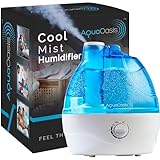
|
AquaOasis™ Cool Mist Quiet Ultrasonic Humidifier for Bedroom & Large room | Check Price On Amazon |

|
43.3'' Portable Air Conditioners, 3-IN-1 Evaporative Air Cooler w/Remote | Check Price On Amazon |

|
BlueDri BD-AS-550-BL Negative Machine Airbourne Cleaner HEPA Air Scrubber | Check Price On Amazon |

|
Space Heater, VCK 24" 12ft/s Fast Quiet Heating Portable Electric Heater | Check Price On Amazon |
